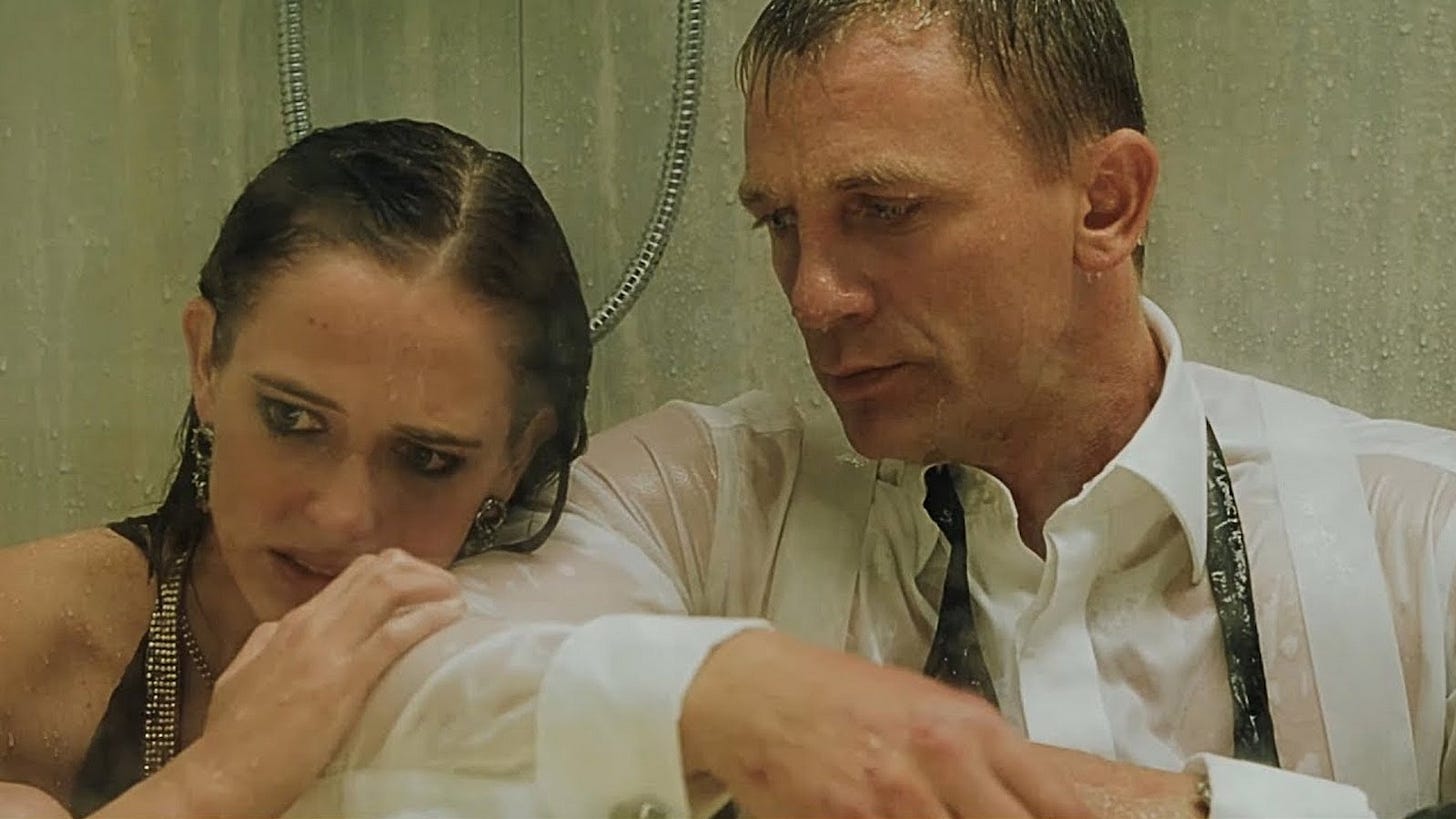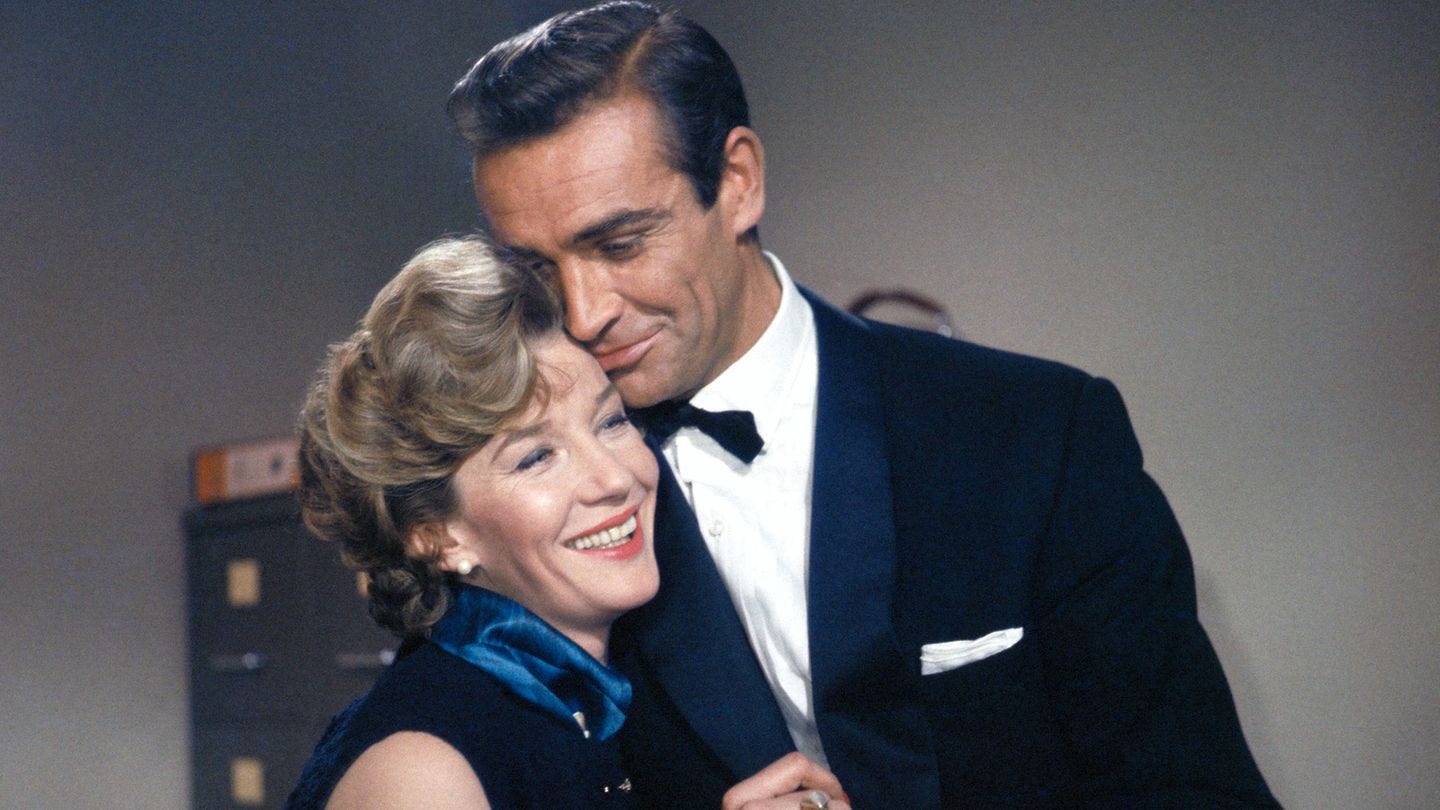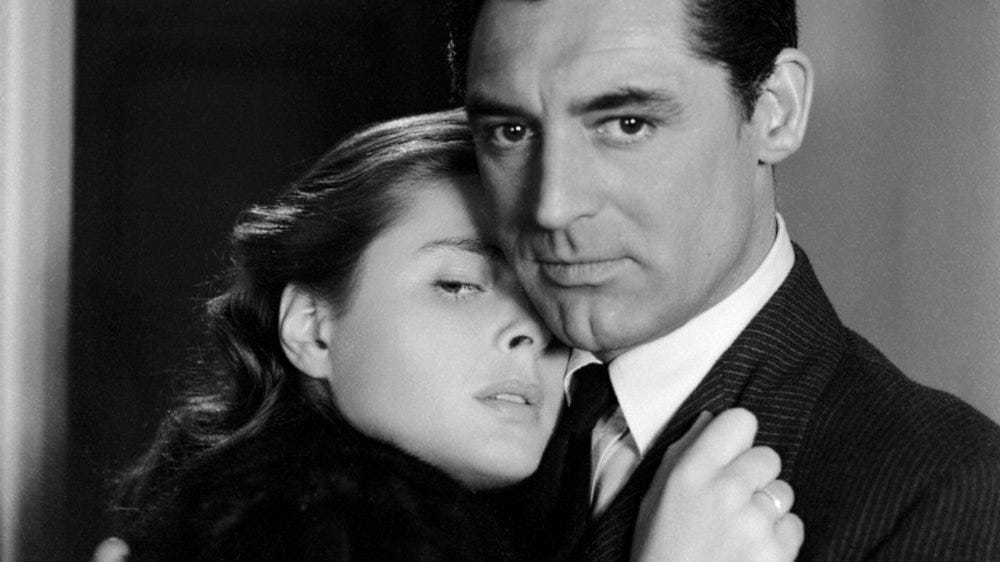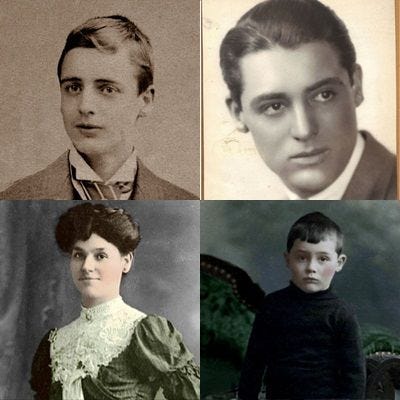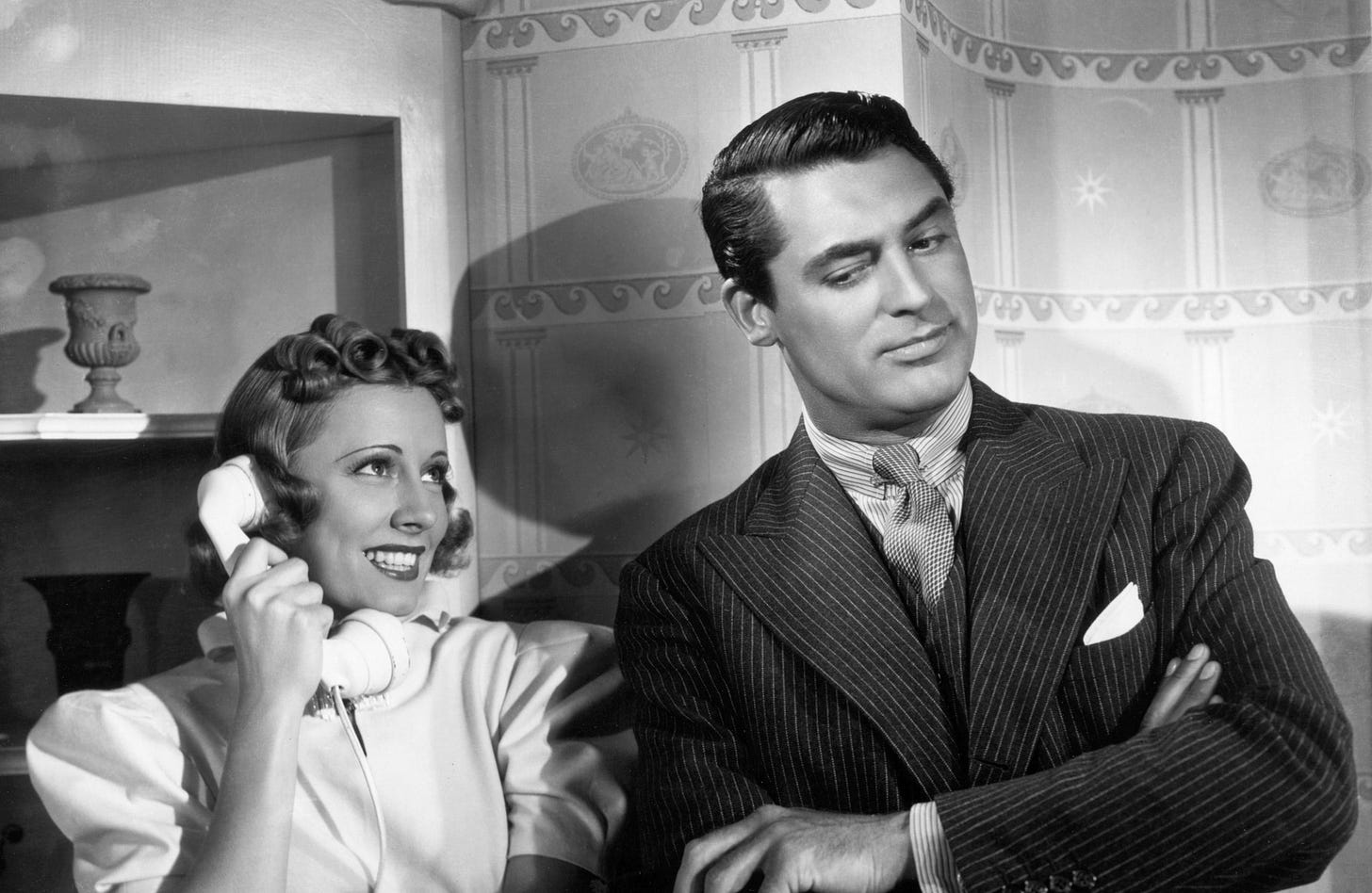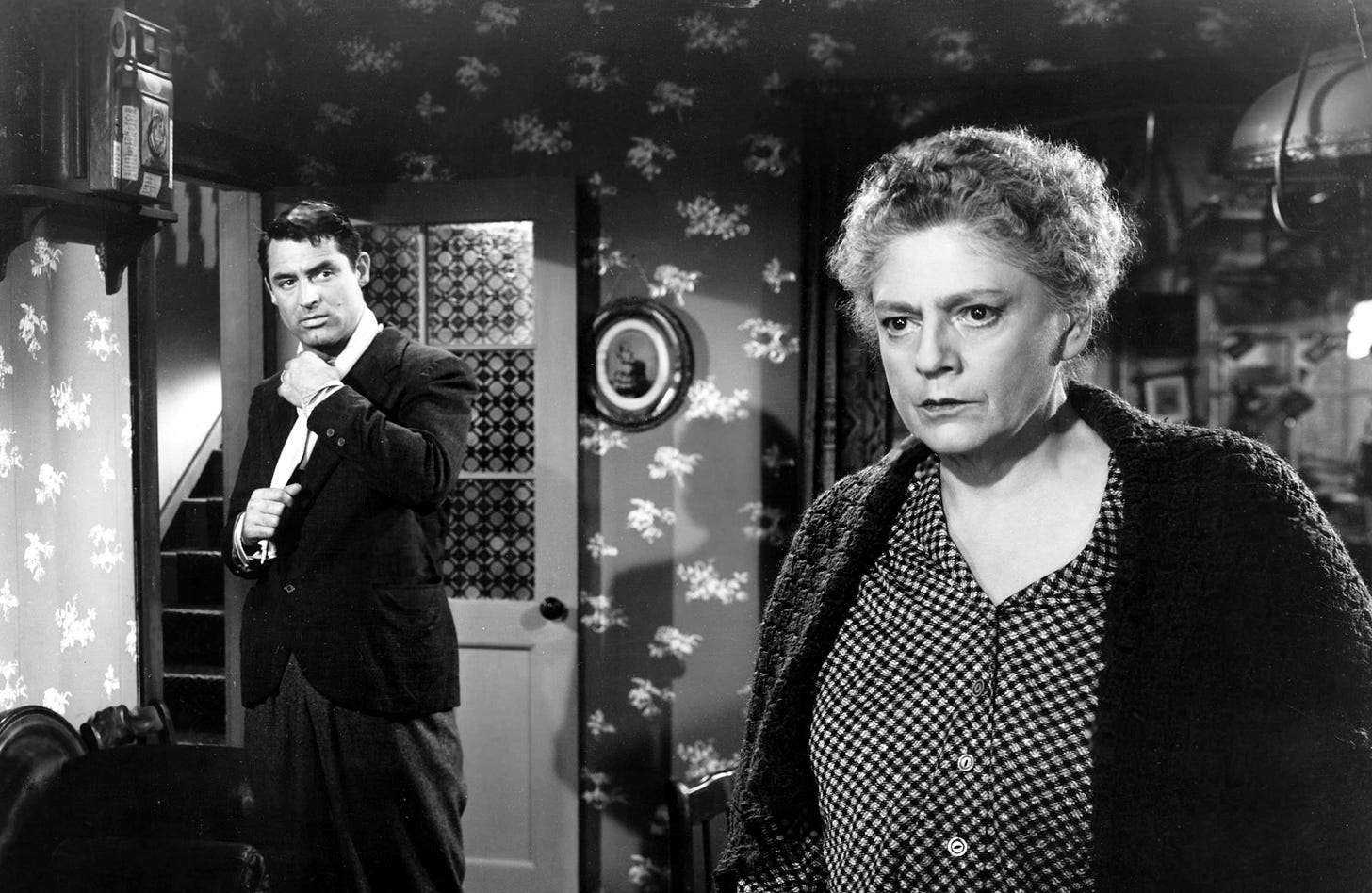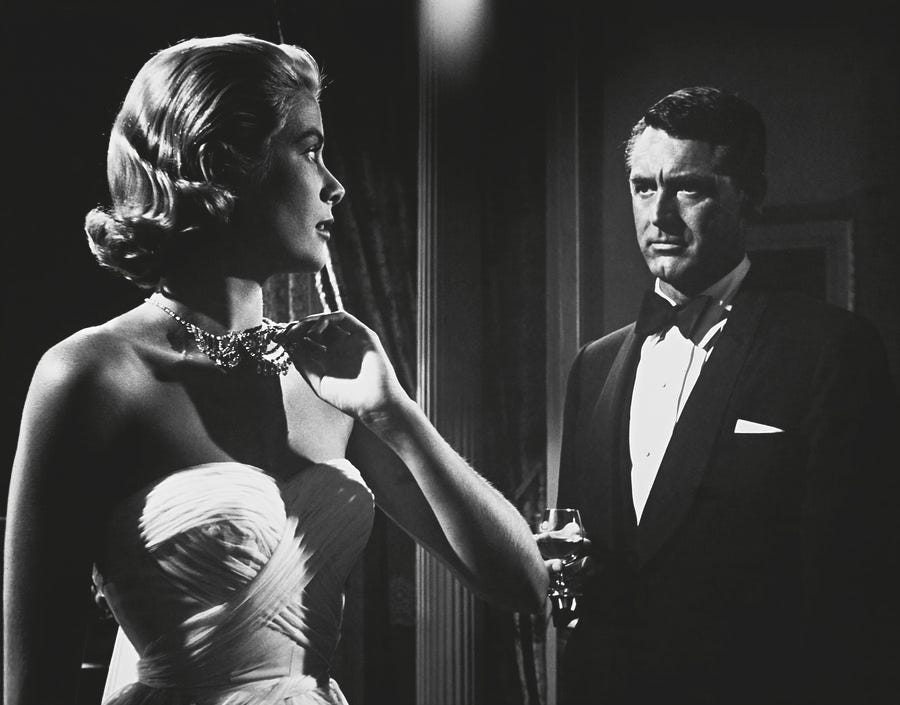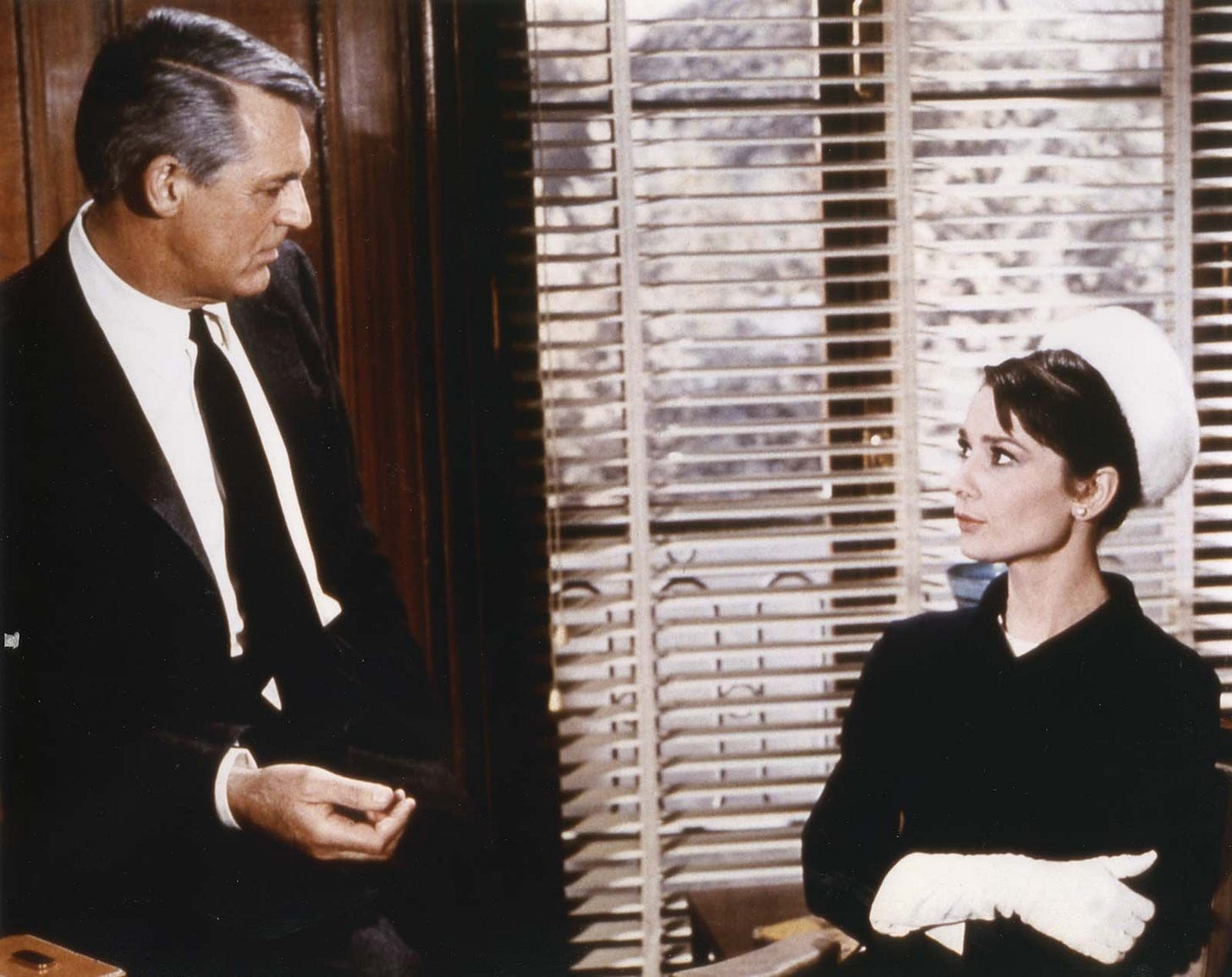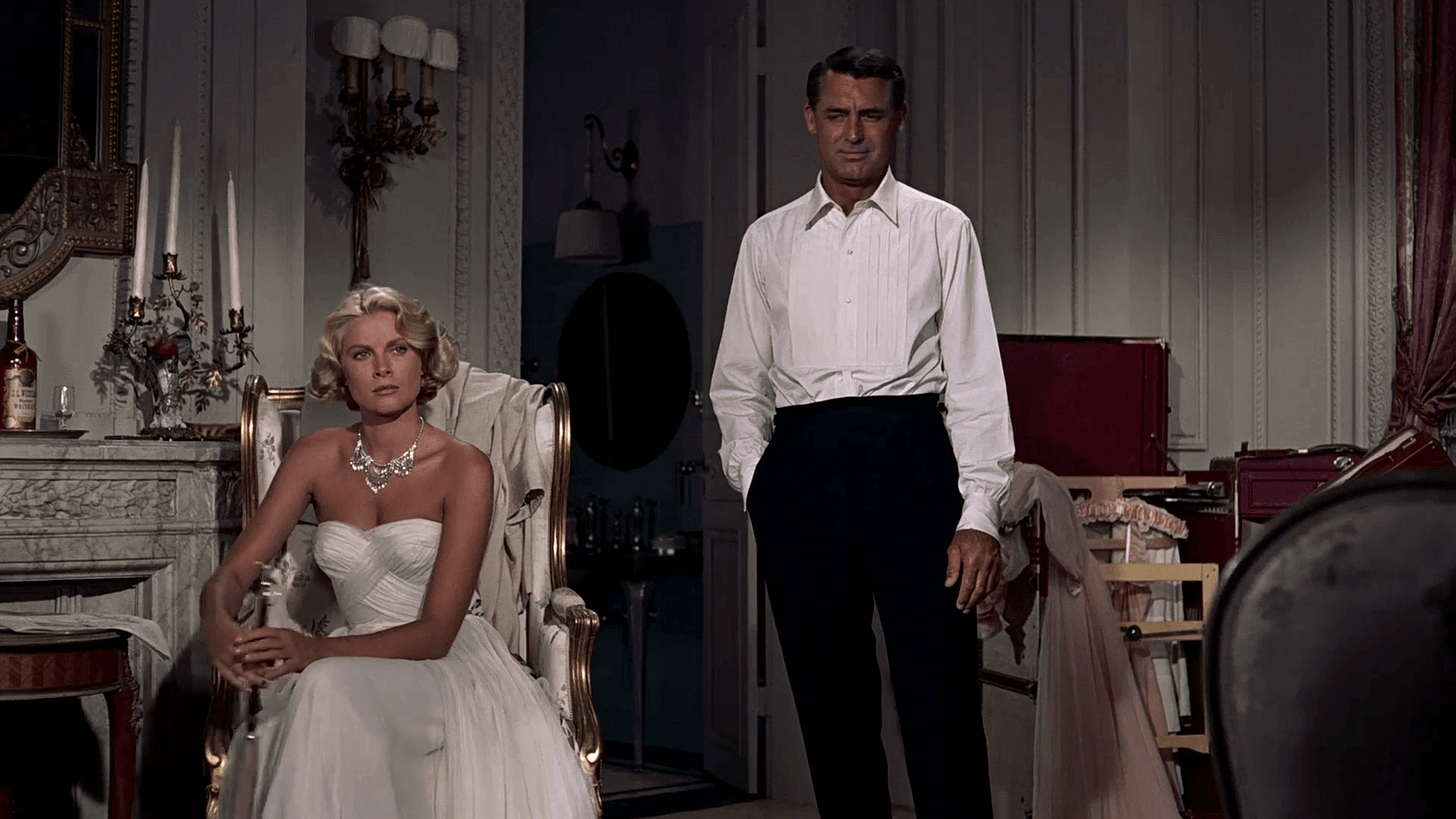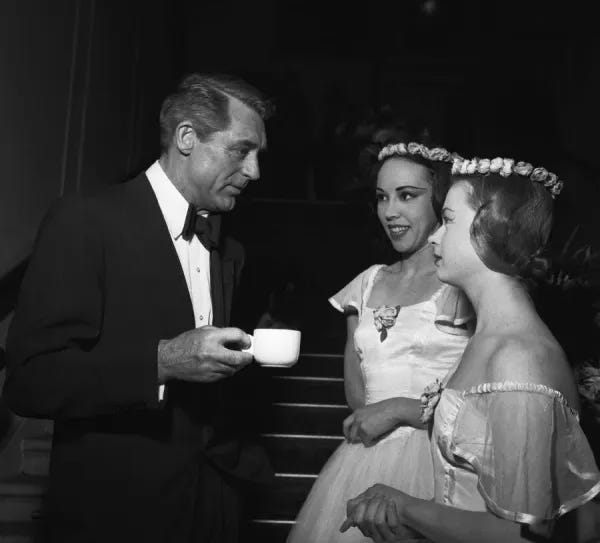What Cary Grant Knew About Being a Gentleman
The Untold Truth on Why Every Man Wanted to Be Him
If there’s a major problem for modern men… it’s the fact that we’ve got no ‘aspirational’ role model in pop culture anymore.
When you look into big names in the film industry (either from Hollywood or the domestic landscape), celebrities in music or sport, or the ‘internet’ figures on a mass scale…
There’s no sign of an elegant gentleman that stands in these sectors.
“A gentleman is a man who pursues excellence in both internal character and external appearance.” – Patrick Gunn
For those big names who’ve got a polished appearance, they seem to lack internal substance.
For those who are full of in-depth intellectual edge and groundbreaking ideas, they seem to overlook the gesture, presentation, and appearance they project.
So it’s fair to say that modernity has somewhat erased the archetype of ‘completeness’ in a man from sight — replacing it with the idea that a man must be defined by his flaws.
That you’ve got no right to seek and ask for an ‘aspirational’ icon who embodies elegance, class, and substantial charisma with refined masculine traits anymore.
However, as you see from the title of this video… there’s a name every classic style enthusiast or modern man who seeks that ‘completeness’ will certainly know — Cary Grant.
For a long time, I was lost in a sea of flawed male role models.
Whenever I tried to look for an iconic figure to anchor my self-development… all I found was either raw aggression, a soft ‘nice guy’ figure, or an ‘almost’ complete kind of character.
To be precise, I mean… Ian Fleming’s James Bond 007 as portrayed by Daniel Craig.
Since I was born in 2000, by the time my cognitive ability was ready for film appreciation, Casino Royale was the first one I had a chance to watch in the cinema.
(Though my first exposure was actually to Pierce Brosnan’s last 007 film, Die Another Day, when I was 5 years old, watching it from my father’s DVD.)
But even then, my impression of the epitome of masculinity — James Bond — was still not quite the ‘man’ I sought or aspired to become.
Not until 2021, when I decided to deep-dive into the franchise by throwing back to the original work — Dr. No, which premiered in 1962…
And within the first 15 minutes, after the scene at Les Ambassadeurs — I finally found the kind of man I wanted to become.
As I once fully ‘dived’ into the allure of Connery’s 007 compared to the modern one in this essay — the former is full of aspiration.
He’s flawless.
He’s charming.
He lives life on the edge.
He’s the man.
Still, while Sean Connery’s 007 was the first time I was exposed to the ideal classic masculine icon — the man, or I should say, the gentleman who truly captivated and inspired every molecule of me to devote my life to this archetype is Archibald Alexander Leach.
On a surface level, people familiar with this gentleman would likely admire him for being a style icon — a man who embodied elegance, class, and charisma in the most effortless demeanor possible, or a man who made himself a legendary actor of Hollywood’s Golden Age.
But gentlemen… in this essay, I’m here to say that what Archie Leach accomplished was nothing short of a human achievement.
And his creation — his life’s work — was known by the name Cary Grant.
What you’re going to see from now on won’t be like any other ‘Grant’ charisma, style, or reinvention breakdown you’ve seen on the internet…
It will be the one where I show you the good, the bad, and the ugly of Archie Leach — one that, by the end of it, I promise will make you appreciate the legacy he left behind for the world…
And especially for the men who, like me, were born into nothing more than ever.
Let me start by asking you this…
“What do these icons of their field have in common?”
John Coltrane — the only enlightened sax voice that jazz has ever got.
Muhammad Ali — the bee & butterfly all-time boxing champion.
Cristiano Ronaldo — the all-time scoring biological machine of the football world.
Apart from the fact that they were considered some of the greatest professionals in their own specialist space — they surprisingly came from nothing, or I would say, anything but ideal circumstances to end up as the men we know today.
For Coltrane, he was born in the brutal era of Jim Crow — a period far less than desirable for Black people in the U.S. Then, at 12 years old, his father, grandparents, and other close family members all died within a short span. He was left only with poverty and grief.
For Ali, he too was a victim of racial segregation — experiencing inequality and inferiority by birthright, fueled by the trauma of Emmett Till’s tragic incident. He actually began his boxing career out of a desire to get back his bicycle that was stolen by a thief.
For Ronaldo… I think most of you are probably familiar with who he is and was. He was born poor, grew up with an alcoholic father — a classic tale for a great footballer. But the extra mile in the psyche of Ronaldo is the ‘inferiority’ he absorbed from the external world. Such as his accent being mocked when he moved to Lisbon alone at twelve… or his hypersensitivity to poverty and disrespect.
All of these far-from-ideal backgrounds are what forged these men into who we know them as.
John Coltrane became a spiritual master — using saxophone and jazz as a medium. He clawed his way out of addiction not through rehab but through inner transformation — meditating and turning to divine discipline. And that’s what made him a jazz legend.
Muhammad Ali ground his way to become the true world champion — the poet in gloves, the showman with conviction, and the fighter who refused to fight in an unjust war.
Cristiano Ronaldo has done the impossible for mortals — by marking his name and staying in the same league alongside the God of Football, Lionel Messi — through brutal self-discipline, ego-engineering, and unrelenting work ethic.
Achievements where we can firmly see the association between greatness and their ‘inferior’ beginnings — the very foundation that accumulated into an obsession to become greater than destiny ever allowed them to be.
Now, gentlemen, you probably guess what I’m about to say next:
Archibald Alexander Leach belongs in the same league as these icons — and all was dedicated to his upbringing.
The very thing that contributed to the creation of the myth in the name of Cary Grant… and a lifetime quest for this nature boy.
Cary Grant is the ‘Myth’ from a boy who just to love and be loved in return
I want you to imagine this…
You were born into a working-class family during the early 20th century, where peace and societal stability were far from reality — at least compared to the modern day.
You were raised by a dysfunctional family where both of your parents were cold, detached — yet demanded ‘perfection’ from you — all of this when your age was still a single-digit number.
“You see, Archie, nobody wants you. Nobody came for you, did they? I’m the only-the only one-who cares about you. Nobody else. And don’t you ever forget it, because the next time you let go of my hand and wander off, I won’t come back.” Elsie Maria Leach to Archibald Alexander Leach
Then the aftershock occurred: at the age of nine, you were told by your father that your mother had run away from home and wouldn’t ever come back.
In the next five years, your father left you, remarried, started a new family, and emotionally detached from you. Now, the house you lived in was empty — and you became a ghost in your own home.
That was the first 14 years of the young boy, Archie Leach…
Emotional withdrawal
Perfection demanded
Abandonment from affection
Experienced nothing but rejection from the world
And when the chance to escape came — no matter how slight it seemed — he couldn’t risk not taking it. Because otherwise, staying the same would feel like being buried alive.
At the age of fourteen, Archie actually lied about his age to join a troupe of traveling acrobats — the Bob Pender Stage Troupe.
Using his natural acrobatic gifts and relentless training, he toured across England, living with the troupe.
He experienced the ‘meaning’ of life for the first time. The applause, the discipline, the movement… the escape — all gave him hope that maybe he could become something more.
He left school and his empty home — and eventually… never looked back.
The turning point of his life came when the troupe had a program to perform on Broadway, New York…
During the cruise that he and the troupe were on, there was a group of American socialites — one of them being Douglas Fairbanks Sr. — arguably Archie’s first ever role model in shaping the man he would become.
He witnessed a different way of life — a class act from Fairbanks Sr. The way they dressed, spoke, ate, and behaved.
And finally, when Archie landed in America — apart from the skyscrapers — what he saw was freedom, and a chance for reinvention.
So… even after the tour ended, while others cruised back to Great Britain… he stayed behind.
Right then, he was done with Bristol.
Done with the past.
Done with waiting to be saved.
The young man decided to dictate life by his own hand… not relying on anyone anymore.
Though his early years in New York were far from romantic — it was the classic hustle story that builds a man.
He performed in vaudeville acts, stage musicals, low-level theater.
He worked as a backstage hand, stilt-walker, set builder, even an occasional male escort.
But behind his daytime grind for survival… he secretly crafted his ideal persona.
He frequented New York libraries, practiced speech, observed gentlemen on Fifth Avenue.
He watched and mimicked the way others lived the life he was crafting inside himself.
Then in the late 1920s — when Archie began to be exposed to a bigger audience, had a chance to perform in small stage roles on Broadway and occasionally in Hollywood… his crafted persona, his aura, began to shine.
By 1931, Archie got a chance to do a screen test, and somewhat impressed Paramount Pictures — one of the Big Four production houses during the Golden Age of Hollywood…
Gentlemen, remember — at that time, Archie was still a nobody.
But his decade-long obsession with perfecting a whole new identity gave him a unique presence… one that no producer or filmmaker at the time could quite explain.
This incident was the last time people legally and publicly saw the name Archibald Alexander Leach — because with Paramount’s intention to sell Archie to audiences, combined with his own desire to use this as a catalyst to finally leave his past behind… the myth and the gentleman named Cary Grant was born on that stage — a man with no past, but only polish.
However, the reason why most of you probably recognize Cary Grant’s early work at Paramount or in Hollywood during the 1930s is because he was still being treated by producers and studios as just a good-looking, tall, handsome man with upper-class demeanor — the one he spent a decade imitating and attuning to his character.
But that repetitive perception was erased with his major breakthrough in 1937 with The Awful Truth.
This was the first silver screen piece that showed the world what the name Cary Grant truly stood for:
Fast-talking
Charming
Elegant
Unflappable
Self-aware
Funny with weight
Here, audiences didn’t see an actor — they saw a type of man they’d never witnessed before: cool under pressure, stylish under scrutiny, graceful even in absurdity.
An archetype that separated him from Gary Cooper, Clark Gable, or Errol Flynn.
And after this… I probably don’t even need to tell you what happened to Hollywood — and the world of cinema — because of Cary Grant.
His screwball comedy masterpiece with Katharine Hepburn in Bringing Up Baby
His ‘danger elegance’ persona with Hitchcock in Suspicion
His complete gentlemanliness as C.K. Dexter Haven in The Philadelphia Story
Right then, Cary Grant was in a league of his own… and audiences at that time were obsessed with him.
And when he had a chance to drop the idea of Cary Grant and present Archie Leach to the audience… they were clearly far from appreciating it.
There was a not-so-famous work of Cary Grant during the 1940s… after his long run as the charming, sophisticated, perfect gentleman — he got offered to star in a film adaptation from a novel of the same name — None But the Lonely Heart (1944).
Now, I want you to hear the synopsis of this film…
It’s about a young English man named Ernie Mott, whose father was killed during World War I and learns that his mother is dying of cancer.
Presented through a disaffected, emotionally bruised drifter in working-class London with a Cockney accent. Shadowed face. Restless soul — torn between duty to his dying mother and his own inner rage and confusion among an unstable society.
Well… sounds familiar, doesn’t it?
To be said, Ernie is Archie — and Cary just let the past he once buried bleed through the screen for the first time.
Though this was his role that got him a nomination for Best Actor at the Academy Awards… the film flopped commercially.
He even got a critique that his role was “not believable” — that a lower-class thug probably wouldn’t be this handsome and charming…
The key consequence of None But The Lonely Heart led to Cary Grant later contemplating:
“The only time I played myself was in None But the Lonely Heart, and nobody wanted to see the real me. So I put Archie Leach away and went back to being Cary Grant” - Cary Grant
That said, None But the Lonely Heart was the funeral of Archie on screen — a quiet, tragic moment of naked truth.
This was when he finally understood: The world needs myths more than it wants men.
And Cary Grant… was the myth it needed most.
Either through…
John Robie: the thief who steals hearts as effortlessly as jewels in To Catch a Thief
Nicolo Ferrente: the tragic romantic who could seduce a lady with a raised eyebrow in An Affair to Remember
Philip Adams: the suave financial wizard who makes seduction look like a diplomatic summit in Indiscreet
Roger Thornhill: the ad man who treats espionage like a cocktail party with fists in North by Northwest
or Peter Joshua: the bureaucratic mystery man who flirts like he’s fencing in Charade
These iconic roles — especially in his prime years during the 1950s — are the evidence that people want myth, fantasy, and aspiration — not rawness, flaws, or relatability.
The interesting thing is that many modern ideologists would criticize Cary Grant’s marriage problems and his experience with LSD during the 1950s as the byproduct of not being faithful to his roots — not being ‘authentic’ to who he really was — which in this case, is Archie Leach.
If some of you listening up to this point still hold onto that idea…
Let me ask you this:
“If Archie didn’t fully invent and embody the myth of Cary Grant — would he have finally become the legend… and eventually reconcile with his past to experience transcendental peace in his later years during the 1980s?”
I can firmly say without any hesitation:
Not in a million years.
Right now, you already know what actually drove this man, don’t you?
His mother vanishing created a lifelong fear of abandonment.
His father replacing him created lifelong trust issues.
His upbringing shame created an obsession with elegance.
His early emotional chaos created a worship of control.
His invisible childhood created an obsession with visibility.
His days as Archie were the last place he ever wanted to return to — to continuously suffer and lie to himself that “It’s OK” — to believe that he must find a way to accept that without becoming better.
I don’t think he would’ve even survived past his 20s in that condition — at least not on a mental level.
So, while the world today tries so hard to preach:
“Be yourself.”
Archie’s whole life replied something more like:
“Not if ‘yourself’ is limited, wounded, and half-formed.”
It was only by fully living inside the perfection — the lie, the mask, the myth — that he eventually earned the right to return to himself… without being destroyed.
And that’s why, for me… Cary Grant is more than just a stylish gentleman admired for surface-level secrets or charisma breakdowns…
He’s the achievement of mankind that proves — no matter how hard life hits you, no matter how cruel the world you were born into… with enough obsession, with enough discipline, with enough dedication — you can become better.
So… gentlemen, as I’ve gone through the whole biography of Cary Grant, watched both his early and late work from the Golden Age of Hollywood, stumbled upon countless images, stories, and pieces of his life…
Allow me to give you 3 legacies that Archie Leach has left for you and me — to learn from and absorb, so that we too can become complete men… and make this overly casual society… a better place.
#1 Legacy: He Has Shown a Miracle of an Ideal Obsession
Archie Leach’s childhood — his mental cage — was his demon. For the first decade of his life, you already know how much this man had to go through.
In order to survive and leave that pain for good, Archie needed an ideal image… one that wouldn’t be overlooked, wouldn’t be left behind, wouldn’t be just any decoration in the background.
An ultimate gentleman — capable of everything, in every place, at every time.
While I do not know exactly what Archie did on a daily basis during his 20s to craft the man Cary Grant in his 30s and beyond… his results — on screen and in text — have proven that this man was so obsessed and attached to the idea of his ideal.
Again, this was due to inferiority — a poor upbringing far from perfect — and when he was exposed to the wider world of Britain, saw Douglas Fairbanks Sr. on the cruise for the first time, saw how 1920s gentlemen on Fifth Avenue behaved…
He experienced and gathered the savoir-faire of a noble man.
He used it to fuel his energy and as a resource to construct his myth, day by day, night by night.
And after this kind of repetitive mental obsession for decades, he ended up at the apex — the pinnacle of gentlemanliness — in a league where modern actors and men still aspire to reach.
In the end, the tale of Archie Leach to Cary Grant is proven evidence that obsession, when channeled into something great, doesn’t hurt anyone — especially when it’s the ideal image of yourself, the very best version you could ever dream of becoming.
When your mind sees that ideal not just as “good to be someday,” but as a “die trying or your identity won’t survive” reality…
That’s when obsession enters the equation.
And you, too, can start constructing your myth — just like Archie did.
#2 Legacy: He Has Demonstrated How Elegance Is the Ultimate Seduction Tool in a Man’s Life
This has been proven in all of his iconic roles… John Robie in To Catch a Thief, Roger Thornhill in North by Northwest, Peter Joshua in Charade…
A little further context for those who didn’t know — Cary Grant once retired early in the 1950s due to sensing the undercurrent shift in Hollywood — the rise of the Brando archetype… the one that rejected glamour and elegance.
However, what he missed at that time was that he was still acting based on scripts and roles — not his own myth.
From The Awful Truth in 1937 to the early 1950s — while Cary Grant had truly injected his essence into many characters — he was still an actor, not yet a screen mythic.
Until his comeback in To Catch a Thief — where he portrayed the most complete man the world of cinema had ever witnessed, even perhaps to this day.
For those of you who haven’t seen this film — if I had to describe his character in one sentence, it would be this:
John Robie is the man who doesn’t need to prove anything to anyone.
All of it reflected through his gesture, demeanor, speech, style, and the refined masculine energy with which he interacted with the world — whether it be the French police who wanted to imprison him, or the gorgeous American heiress played by Grace Kelly, who was, in some way, completely seduced by him.
From then on, Cary Grant was no longer just acting — he was playing “what-if” scenarios:
Roger Thornhill was “What if Cary Grant were an advertising executive mistaken for a spy, caught in an espionage plot?”
Peter Joshua was “What if Cary Grant were a bureau agent navigating his mission involving an innocent woman in distress?”
And the single core essence that turned Cary Grant from actor to myth was his harnessed inner truth: Elegance — the very thing he had been refining for decades.
This term — often misused as fashion marketing fluff — stands for something far bigger than clothing. It means charm, beauty, and allure born from authenticity and expressed with effortlessness.
Elegance can be seen in every aspect of one’s life — through dressing, speaking, moving through the world, interacting with others, and living with intention on a daily basis.
Elegance cannot be bought.
While clothing may provide access to it — that means nothing if you don’t elevate yourself beyond just dressing well.
It’s about knowing who you are and who you want to become.
It’s about moving past the surface, into the substance of things.
And the effect of elegance?
It effortlessly attracts.
It pulls others toward you — without loud proclamations or performative gestures.
In an age where everyone seems obsessed with showing off external achievements and material status symbols — elegance is the ultimate differentiator for a man to cultivate.
A tool that, at some point, will allow you to experience what Cary Grant mastered half a century ago.
#3 Legacy: He Has Empirically Proved That the World Once (and Still) Idolized a Gentleman
This is the final and boldest thing Archie ever left for humanity.
For a very long time — before modern civilization — the title of gentleman was restricted by birthright. Admired, yes — but only accessible with society’s permission.
However, from the harsh days and nights Archie endured in Bristol, to the glory of his rebirth as Cary Grant in Hollywood — he made the 20th-century world crave the fantasy embedded in the word gentleman.
Not in a way that was completely unattainable — though what he portrayed may have seemed so — but in a way where people admired not just a role played by an actor, but the actual man living and breathing in it.
They saw how right it was to be gentle yet strong, charming yet dangerous — masculine yet refined.
The result?
Men wanted to be him.
Women wanted to be with him.
Now, fast forward to 2025…
While it’s tragic that 99% of the global population is unaware of the history and existence of Cary Grant —
trust me — they still react to him just the same as their grandparents did in the 1950s.
In the end, human nature is the defining force behind how people think and behave.
And humans are irresistibly drawn to those who make them feel at ease — and elevate their experience of life.
This legacy, left by Archibald Alexander Leach, is the one I believe will ignite hope for many of you — and many more to come — especially when his impact is recognized not just as a Hollywood legend…
But as a man who came from nothing, and left behind an immortal myth that transcends time.
The one that says:
“You don’t need permission to become who you want to be. You just have to be obsessed with it — and trust in that vision and the progress it requires.”
All of which, I believe, you can clearly see… in a nature boy from Bristol, born as Archie Leach — and his greatest invention for humanity: Cary Grant.



